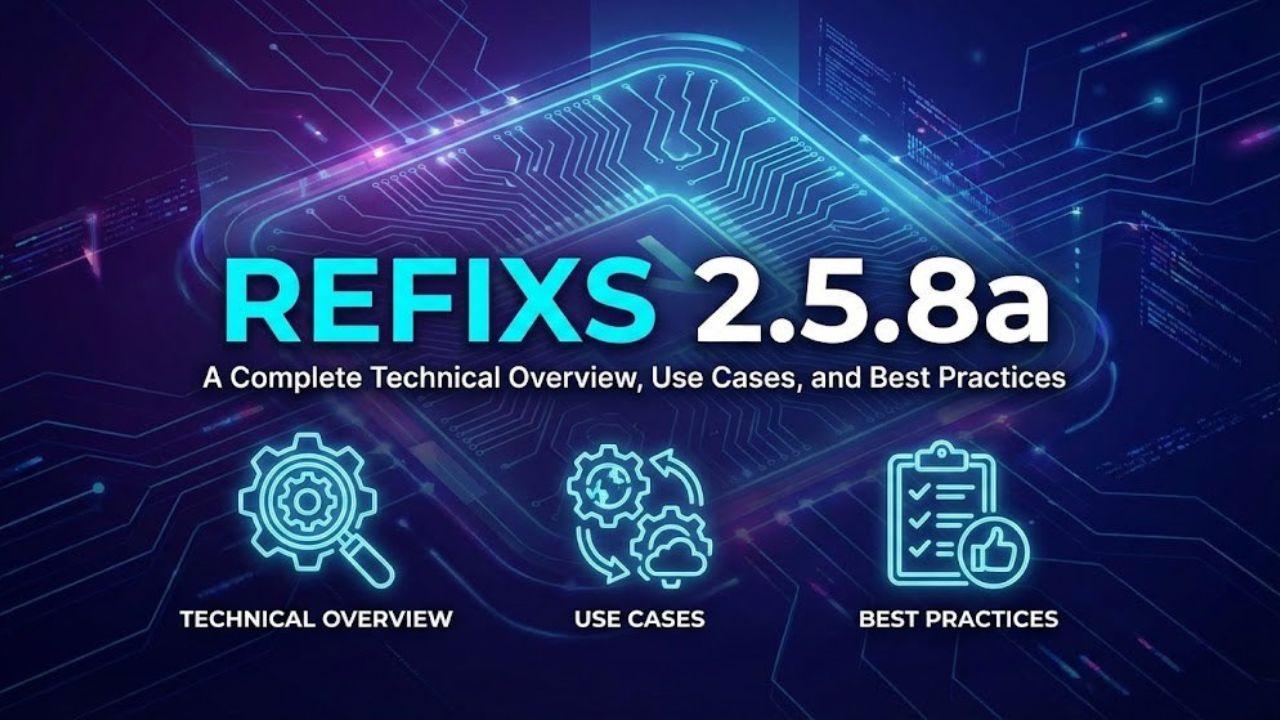Property viewings are one of the most crucial stages in the home-buying process.
They provide an opportunity for potential homeowners to explore the space, understand its features, and detect any potential problems that may not be immediately visible.
Asking the right questions during a property viewing will not only help you evaluate the property’s suitability but also ensure you make an informed decision.
Whether you’re a first-time buyer or an experienced homeowner, these 25 essential questions will guide you in identifying potential red flags and assessing whether the property is the right fit for you.
Why Asking the Right Questions Matters?
Buying a home is a significant investment—likely one of the most substantial financial commitments you’ll ever make.
Therefore, property viewings are much more than an opportunity to imagine where your furniture will go.
They’re about collecting critical information that can help you make a smart purchase decision.
A property that looks perfect on the surface may hide expensive issues like outdated electrical systems, hidden mold, or major structural flaws.
Asking the right questions upfront can help you avoid costly surprises down the road.
In this comprehensive guide, we’ll walk you through 25 key questions you should ask during a property viewing, explain why each one matters, and what to do with the answers.
1. Why Is the Property for Sale?
Understanding the Seller’s Motivation
One of the first and most important questions to ask is, “Why is the property for sale?” Knowing the reason behind the sale can give you valuable insights into the house and the current owners’ experiences living there.
In some cases, the seller may be relocating due to a job, upsizing or downsizing, or moving closer to family.
However, the seller may also be leaving due to unresolved issues with the property or neighborhood, such as noise, problematic neighbors, or expensive maintenance.
Key Follow-Up Questions:
- Is the seller in a rush to move?
- Has the home been problematic for them in any way?
- Are they relocating for positive reasons like a job promotion or family move?
Understanding the seller’s motivation can also provide you with leverage during negotiations.
For instance, if they are in a rush to move, they might be more willing to accept a lower offer or include some additional perks like appliances.
2. How Long Has the Property Been on the Market?
The Importance of Market Duration
A property that has been on the market for an extended period may raise red flags.
Typically, homes that are priced right and are in good condition sell relatively quickly.
If the property has been listed for several months (or longer), it might indicate that the asking price is too high, or there could be underlying problems that are deterring buyers.
On the other hand, homes that have only been on the market for a short time may have more interest from other buyers, leading to increased competition and possibly a bidding war.
Key Points to Consider:
- Properties that have been on the market for a long time may allow for more room in negotiations.
- Ask the agent if there have been previous offers and why they fell through.
- If the property has been relisted or price-reduced, inquire about the reasons for these changes.
3. What’s the Neighborhood Like?
Evaluating the Location
The house itself is just one part of the equation—the neighborhood can significantly impact your long-term happiness with the property.
Ask the seller or real estate agent for information about the surrounding area.
Is it family-friendly? Are there parks, schools, or playgrounds nearby? What about grocery stores, public transport, and other essential amenities?
In addition to asking the seller, you should spend some time exploring the neighborhood yourself.
Visit during the day and night to get a sense of traffic patterns, noise levels, and the general atmosphere.
Key Aspects of the Neighborhood to Consider:
- Safety:
Inquire about local crime rates and how safe the area feels.
- Noise Levels:
Is the house near a busy street, train tracks, or a flight path? These can have a significant impact on your quality of life.
- Schools:
If you have children, ask about the quality of nearby schools.
- Future Development:
Are there any ongoing or planned construction projects? These can either enhance or detract from the neighborhood’s appeal.
4. Are There Any Ongoing or Upcoming Developments Nearby?
How Future Development Affects Value
New developments in the surrounding area can significantly affect the property’s value, either positively or negatively.
While new infrastructure such as schools, parks, and retail centers can enhance property values, large construction projects or high-density developments can create noise, increase traffic, and even lower your home’s value if they negatively impact the neighborhood’s desirability.
Things to Inquire About:
- Zoning Laws:
Ask about the zoning in the neighborhood. Are there any plans for commercial developments nearby?
- Construction Impact:
Will nearby construction cause increased noise or traffic during the next few years?
- Property Value Impact:
Could future developments boost or reduce your property’s market value?
You can also check with local government planning departments or search online to see if there are any public records about planned developments in the area.
5. What’s Included in the Sale?
Clarifying What You’re Buying
When viewing a property, it’s easy to assume that all the appliances, fixtures, and fittings are included in the sale, but that’s not always the case.
Some sellers may take their high-end kitchen appliances or custom light fixtures with them.
Asking this question early on will help you clarify what’s part of the deal and what isn’t.
Items to Inquire About:
- Appliances:
Are the fridge, dishwasher, and washer/dryer included?
- Window Treatments:
Will curtains, blinds, and other treatments stay?
- Outdoor Structures:
Does the sale include garden sheds, hot tubs, or outdoor furniture?
Having a clear understanding of what’s included can help avoid surprises during the final stages of the sale.
6. How Old Is the Property?
The Impact of Age on Condition
The age of a property can significantly impact the level of maintenance it requires.
Older homes often come with more character and charm but may also have older systems like plumbing, wiring, and insulation that need updating.
Newer homes are usually built with modern materials and follow current building codes, but they might lack the individuality and historical appeal of older properties.
Factors to Consider:
- Building Codes:
Were the house and its systems built to meet modern safety and energy standards?
- Maintenance:
Older homes may require more frequent maintenance, especially if the roof, windows, or siding are original.
- Renovations:
Has the home been updated or renovated? If so, what parts were improved and how recently?
7. What Is the Condition of the Roof?
Assessing Roof Longevity
A roof is one of the most critical components of any home.
A damaged or aging roof can lead to water damage, mold, and other costly repairs.
Replacing a roof is one of the more expensive home maintenance tasks, so it’s essential to know the roof’s current condition and whether it will need replacement in the near future.
Key Questions to Ask:
- Roof Age:
How old is the roof? Different materials have different lifespans.
For example, asphalt shingles typically last 20-25 years, while metal or tile roofs can last 50 years or more.
- Maintenance:
Has the roof been regularly inspected and maintained?
- Materials:
What material is the roof made of, and how does it hold up in local weather conditions?
It’s also worth asking whether the roof has been inspected for storm damage, especially if the home is in an area prone to severe weather.
8. Has the Property Been Renovated?
Checking Renovation Quality
If the property has undergone renovations, it’s essential to ask what kind of work was done, who carried it out, and whether the correct permits were obtained.
Poorly executed renovations can lead to future problems, and if the renovations weren’t properly permitted, you could face fines or be forced to undo the changes after you buy the home.
Key Points to Clarify:
- Scope of Work:
What renovations were done? Were they structural or cosmetic?
- Permits:
Were the appropriate permits obtained for the renovations?
- Warranties:
Are there any warranties on the work done?
Request documentation for any significant renovations to ensure that they meet local building codes and regulations.
9. Are There Any Warranties for Appliances or Systems?
Protecting Against Future Costs
Many of the systems and appliances in a home—like the HVAC system, water heater, and kitchen appliances—can be expensive to repair or replace.
If these items are relatively new, they may still be under warranty.
Knowing the age and condition of these systems can help you anticipate future costs.
What to Ask:
- Warranties:
Are any of the home’s systems or appliances still under warranty?
- Age:
How old are the major systems like the furnace, air conditioner, and water heater?
- Service Records:
Has regular maintenance been performed on these systems?
Warranties can provide peace of mind and reduce your financial risk during the first few years of homeownership.
10. What’s the Water Pressure Like?
Testing Plumbing Quality
Water pressure might seem like a minor detail, but it can significantly affect your daily life, especially when it comes to showering, washing dishes, or doing laundry.
Low water pressure can be a sign of underlying plumbing issues, such as clogged pipes, leaks, or outdated plumbing systems.
How to Check:
- Faucet Test:
During the viewing, test the water pressure by turning on faucets and showers.
- Plumbing Age:
How old are the pipes? Older plumbing systems may need replacement.
- Past Issues:
Have there been any plumbing repairs or issues?
If the water pressure is consistently low, you may need to factor in the cost of plumbing upgrades or repairs.
11. How Is the Insulation and Energy Efficiency?
Assessing Utility Costs
In today’s energy-conscious world, energy efficiency is a top priority for many homebuyers.
Poor insulation can lead to high heating and cooling bills, as well as an uncomfortable living environment.
Ask the seller about the insulation in the home, the windows (whether they are double-glazed), and other energy-efficient features.
Key Factors to Inquire About:
- Insulation:
Is the home insulated, and if so, what type of insulation is used? This is particularly important in colder climates.
- Windows:
Are the windows double-glazed or energy-efficient?
- Energy Performance Certificate (EPC):
Does the property have an EPC, and what is its rating?
Energy-efficient homes not only save money on utility bills but can also have a smaller environmental impact.
12. What Are the Utility Costs?
Understanding Monthly Expenses
Beyond the purchase price, it’s important to consider ongoing costs like utility bills.
High heating, cooling, and electricity bills can add significantly to your monthly expenses, especially in homes with poor insulation or outdated systems.
Ask the current homeowner for a breakdown of the average utility costs for the past year.
What to Ask:
- Utility Bills:
What are the average monthly costs for heating, cooling, electricity, and water?
- Seasonal Variations:
Are the costs higher in summer or winter?
- Energy Sources:
Does the home use gas, oil, or electricity for heating? What’s the cost difference?
Knowing these costs upfront will help you better budget for your future living expenses.
13. Have There Been Any Pest Problems?
Protecting Your Investment from Unwanted Guests
Pests like termites, ants, mice, and cockroaches can cause significant damage to a home, and they are often difficult (and expensive) to eradicate.
Some pests, like termites, can weaken the structural integrity of the house, leading to costly repairs down the line.
What to Look for:
- Visible Signs:
Check for signs of pest infestations, such as droppings, gnaw marks, or chewed wires.
- Pest Control History:
Ask the seller if they’ve had any pest issues and what measures were taken to address them.
- Preventive Measures:
Have preventive measures like sealing cracks or using repellents been implemented?
If the property has a history of pest problems, you may want to bring in a pest control expert for a thorough inspection before making an offer.
14. What’s the Crime Rate in the Area?
Prioritizing Safety
A safe neighborhood is a top priority for most homebuyers, especially families.
Even if the home and neighborhood seem safe during the day, crime rates can vary significantly between areas.
Ask the real estate agent or seller about the crime rate in the area and any safety concerns.
Key Points to Research:
- Local Crime Data:
Check online resources like local police websites for crime statistics.
- Community Safety:
Are there neighborhood watch programs or active police patrols?
- Property Crimes:
How often do burglaries, vandalism, or car thefts occur in the neighborhood?
A low crime rate can provide peace of mind and protect your investment in the long term.
15. What’s the Age and Condition of the Heating and Cooling Systems?
Assessing HVAC Lifespan
Heating and cooling systems, such as furnaces, boilers, and air conditioning units, are essential to a comfortable home environment.
These systems can be expensive to repair or replace, so it’s important to know their current condition before buying the house.
Key Questions to Ask:
- System Age:
How old are the HVAC systems, and how long are they expected to last?
- Maintenance:
Have the systems been regularly serviced?
- Efficiency:
Are the systems energy-efficient, or will they need to be upgraded to reduce utility costs?
Knowing the age and condition of these systems can help you plan for future expenses and avoid sudden breakdowns.
16. How Much Are the Property Taxes?
Budgeting for Long-Term Costs
Property taxes can vary widely depending on the location and value of the home.
They’re a significant part of your monthly and annual expenses, so it’s essential to know how much you’ll be paying.
Ask the seller or agent about the current property taxes and whether there are any planned increases.
Things to Consider:
- Current Property Tax Rate:
What is the current annual property tax for the home?
- Assessment Changes:
Has the property been reassessed recently, or will it be reassessed after the sale?
- Tax Increases:
Are there any upcoming tax hikes due to local development or new infrastructure?
Understanding property taxes upfront will give you a clearer idea of the total cost of homeownership.
17. Are There Any Noise Issues?
Assessing Noise Pollution
Noise pollution can significantly impact your quality of life, especially if you value peace and quiet.
While the home might seem serene during your viewing, it’s important to check for potential noise sources like nearby roads, airports, or nightlife venues.
What to Check:
- Traffic:
Is the home near a busy road or highway? If so, how loud is the traffic during peak hours?
- Airports:
If the property is located near an airport, check whether planes frequently fly overhead.
- Nightlife:
Is the home near restaurants, bars, or clubs that generate noise late into the night?
Visiting the property at different times of the day can give
you a better sense of the noise levels and help you decide whether they’re acceptable.
18. Are There Any Major Structural Issues?
Safeguarding Against Expensive Repairs
Structural issues, such as foundation problems, roof damage, or water leaks, can be some of the most expensive problems to fix.
These issues are often not immediately visible, so it’s crucial to ask the seller or agent about any known structural problems.
Key Points to Investigate:
- Foundation:
Has the foundation been inspected? Are there any visible cracks or signs of settling?
- Roof:
Is the roof in good condition, or does it need repairs or replacement?
- Water Damage:
Are there any signs of past water damage or leaks?
If you suspect structural issues, consider hiring a professional inspector to evaluate the property before committing to the purchase.
19. What’s the Parking Situation?
Clarifying Your Parking Options
Parking can be a significant concern, especially in urban areas where street parking is limited or requires permits.
Ask about the availability of parking spaces, garages, or driveways.
If the home doesn’t have off-street parking, find out whether there are parking permits available and how much they cost.
Things to Consider:
- Garage or Driveway:
Does the property come with a garage or driveway, and how many cars can it accommodate?
- Street Parking:
If street parking is the only option, is it readily available, or is parking a challenge?
- Permit Requirements:
Are parking permits required, and if so, what are the costs and limitations?
Parking availability can significantly impact your daily convenience, especially if you have multiple vehicles or frequent guests.
20. Are There Any Restrictions (HOA Rules, Zoning Laws, etc.)?
Navigating Local Restrictions
If the property is part of a homeowners’ association (HOA), or subject to local zoning laws, it’s essential to understand the restrictions and fees associated with it.
HOAs can impose rules on everything from the color you can paint your house to the types of vehicles allowed in your driveway.
Key Points to Clarify:
- HOA Fees and Rules:
What are the monthly HOA fees, and what do they cover? Are there any restrictions on landscaping, renovations, or exterior modifications?
- Zoning Laws:
What are the local zoning laws, and how might they impact your future plans for the property?
- Rental Restrictions:
Are there any rules against renting out the property, either short-term (like Airbnb) or long-term?
Understanding these restrictions will help you avoid conflicts and ensure that the property aligns with your lifestyle and future plans.
21. What’s the Condition of the Foundation?
Inspecting for Structural Integrity
The foundation is one of the most critical components of a house.
Any problems with the foundation can affect the entire structure and lead to costly repairs.
While foundation issues are not always visible during a property viewing, it’s essential to ask the right questions and keep an eye out for any warning signs.
Key Signs of Foundation Problems:
- Cracks:
Look for cracks in the walls, ceilings, or floors, which can indicate foundation settling.
- Uneven Floors:
Are the floors sloping or uneven? This can be a sign of structural instability.
- Doors and Windows:
Do the doors and windows stick or fail to close properly? This may be due to shifting in the foundation.
If you suspect foundation problems, it’s wise to have a structural engineer evaluate the home before making an offer.
22. Are There Any Signs of Dampness or Mold?
Protecting Your Health and Property Value
Dampness and mold are common problems in homes, especially in areas with high humidity or poor ventilation.
Mold can cause health issues, while dampness can weaken the structure of the home and lead to costly repairs.
Things to Look For:
- Visible Mold:
Check for signs of mold, such as black spots on walls, ceilings, or floors.
- Musty Smell:
A musty odor is often a sign of hidden dampness or mold.
- Water Stains:
Look for water stains on walls, ceilings, or around windows, which may indicate leaks or poor ventilation.
If you notice any signs of mold or dampness, ask the seller what measures have been taken to address the problem, and consider hiring a professional inspector to evaluate the extent of the damage.
23. Is the Property in a Flood or Earthquake Zone?
Understanding Natural Disaster Risks
If the property is located in an area prone to natural disasters such as floods, earthquakes, or hurricanes, you may need additional insurance and mitigation measures.
This can significantly impact your long-term costs and safety.
What to Ask:
- Flood Zone:
Is the property in a flood zone, and if so, has it ever flooded in the past?
- Earthquake Risk:
Is the property located in an earthquake-prone area, and if so, are there any structural reinforcements in place?
- Insurance:
Will you need additional insurance for natural disasters, and how much will it cost?
Being aware of these risks can help you make an informed decision about whether the property is right for you.
24. What Is the Age of the Plumbing and Electrical Systems?
Evaluating Critical Home Systems
Older plumbing and electrical systems can be a significant source of problems in a home.
Outdated systems are more prone to failures and may not meet current safety standards.
Replacing these systems can be costly and disruptive, so it’s essential to ask about their age and condition.
Key Points to Consider:
- Plumbing Age:
How old are the pipes, and have there been any recent plumbing repairs or upgrades?
- Electrical System:
Is the electrical wiring up to code, or does it need to be updated?
- Safety Features:
Does the home have modern safety features such as GFCI outlets and smoke detectors?
Knowing the condition of these systems can help you anticipate future repair costs and ensure the home is safe.
25. Is There Room for Future Expansion?
Planning for Long-Term Growth
If you plan to expand the property in the future—whether by adding an extra bedroom, building a deck, or finishing a basement—it’s important to know if there are any restrictions or limitations.
Local zoning laws, HOA rules, and property boundaries can all affect your ability to make changes to the home.
Things to Consider:
- Zoning Laws:
Are there any zoning laws that limit the size or type of expansion you can do?
- Lot Size:
Is the lot large enough to accommodate your future plans?
- HOA Restrictions:
If the property is part of an HOA, are there rules that limit your ability to expand?
Planning for future growth is an important consideration, especially if you see yourself staying in the home for many years.
Final Thoughts
Buying a home is one of the most significant financial decisions you’ll make, and attending a property viewing is your opportunity to uncover vital information about the property before committing.
By asking these 25 essential questions, you’ll be able to gather critical details that will help you make an informed decision and avoid costly surprises.
From assessing the condition of the roof to understanding local zoning laws, each of these questions plays a vital role in ensuring that the home you choose is a sound investment and a place where you’ll be happy living for years to come.
Make sure to do your due diligence, ask follow-up questions, and if necessary, consult with professionals like inspectors, contractors, or real estate attorneys to ensure that every aspect of the property meets your expectations.







































